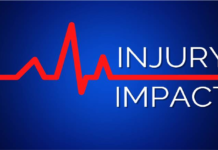Congress stalls on reauthorizing the popular, successful CHIP law.
If you want a sense of how debilitated our political system has become, consider the uncertain fate of the Children’s Health Insurance Program.
The 20-year old program, which provides health care coverage to low- and moderate-income kids, has been an indisputable success: Between 1997 and 2015, the uninsured rate for children under 18 was cut by more than two-thirds, from 13.9 percent to 4.5 percent. Not surprisingly, it’s a popular program: In a Kaiser Family Foundation poll last month, 75 percent of Americans surveyed rated reauthorizing it as “extremely” or “very” important. And it has enjoyed bipartisan support since it was created by Utah GOP Sen. Orrin Hatch and Massachusetts Democratic icon Edward Kennedy.
So of course Congress let the program’s reauthorization deadline, the end of September, come and go without action, leaving CHIP in limbo putting all 50 states into a wary waiting game as their funding dwindles away. Everything’s a crisis or a cliff with these people, even what should be the simple stuff.
And it’s not just CHIP that Congress has let languish: Federal money for community health also expired at the end of the month. That’s 70 percent of the funding for the centers, which serve more than 27 million people across the country. These centers provide preventive care and also help patients deal with chronic conditions, reducing hospital visits and thus saving the system more than $24 billion. If the funding is not renewed, 9 million people could lose care and 50,000 could lose their jobs. Not surprisingly, they too enjoy bipartisan support.
What’s going on? If everyone agrees on these successful programs, why are they stuck in legislative purgatory?
The proximate cause is that the Republican majority got too distracted with its endless, fruitless attempts to roll back the Affordable Care Act. That consumed their attention through the year and very specifically in the crunch time during which the final deals should have been cut on basically non controversial legislation like renewing funding for CHIP and community health centers. But that went by the boards when the GOP dropped everything to push the late, unlamented, half-baked Graham-Cassidy bill. Senate Republicans “pulled the consideration of these bills in order to give Graham-Cassidy one last shot and in doing so threw the vitality of these two programs up in the air,” says Massachusetts Democratic Rep. Joe Kennedy III, who sits on the House Energy & Commerce Committee.
Even with the deadline passed, there seems to be scant sense of urgency to get something done and Republican lawmakers instead are falling back on familiar rote partisanship. The Energy & Commerce Committee passed a CHIP reauthorization last week along partisan lines when the GOP majority insisted on paying for it out of other health programs that Democrats support. In one case the GOP bill would charge higher premiums for wealthy Medicare recipients, which seems like an uncontroversial idea until you consider the likely consequences: “Although individuals at these income levels could doubtless afford higher premiums, requiring them to pay premiums that cover the full cost of Parts B and D could cause some high-income individuals to drop coverage altogether,” an analysis by the Center for Budget and Policy Priorities noted. “This would worsen the Medicare risk pool and weaken support for Medicare as a universal social insurance program.”
Another provision would use money earmarked under Obamacare for prevention and using it for CHIP. “Choose the Affordable Care Act or choose kids,” Kennedy sums up. “Choose one health care program or choose another.” It’s especially galling as GOP lawmakers are trying to craft as big a budget-busting tax cut as they possibly can.
Oregon GOP Rep. Greg Walden, who chairs the committee, has said he’ll negotiate with Democrats until week’s end and then send the partisan legislation to the House floor. Why week’s end is not clear since the House left town Thursday for a week-and-a-half, which means that there’s little chance that anything substantive happens much before the end of the month. It seems a good chance that CHIP and community health funding will end up in the same package when all is said and done. Until then, Washington fiddles while the rest of the country starts to smolder.


















